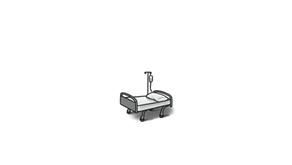DST Dilemma: Spring forward into darkness
Updated: Dec 15, 2023
By Ariel Lee and Jaein Park Dec. 14, 2023
Daylight Savings Time (DST) is the practice of shifting clocks an hour forwards or backwards to enjoy more hours of sunlight and save electricity. Contrary to popular belief, farmers were not the first to come up with the idea; daylight savings was originally suggested by Benjamin Franklin in 1784 and was officially implemented by the U.S. in 1918 as an effort to combat an energy crisis in World War I. DST reduces the use of artificial light, saving energy.

Despite its widespread implementation—about one third of all countries and U.S. states except Arizona and Hawaii follow DST—many wish to end the practice. It is imperative to abandon DST because of its adverse impacts on health and lackluster ability to save energy. Although a single hour shift may seem insignificant, it can lead to various health consequences. In 2020, the American Academy of Sleep Medicine (AASM) found that DST disrupts one’s circadian rhythm—the body’s natural clock which regulates sleep—leading to an increased risk of cardiovascular disease, stroke and reduced life expectancies.
Circadian rhythm disruptions also significantly impact the sleep-wake cycle; when the clocks are turned back in March, the decrease in morning light reduces serotonin and delays the production of melatonin, which helps in entering sleep. The AASM also showed the sleep loss associated with DST leads to other serious consequences, such as a 20% increase in car accidents in America a week directly following DST. To prepare for the transition, people can alter their bedtimes, take naps, get more light and curb the intake of alcohol and caffeine. However, as the negative impacts of DST become apparent, it is clear that continuing the practice is incredibly harmful.
“The time change disturbs my sleep schedule and makes it hard for me to focus in school. For example, when our clocks were adjusted in March, I felt incredibly tired and found it difficult to concentrate in class,” Sophomore Mihika Moghe said.

On the other hand, proponents of DST claim its various benefits include the effective use of natural light energy and economic benefits. However, DST’s supposed energy-conserving effects are overblown. During DST, people wake up at earlier and thus colder times compared to the Standard Time schedule, making them more likely to turn on heaters to keep warm. Those who live closer to the equator consume more energy during DST due to the hot weather, leading to increased use of air conditioning to keep cool—consuming more energy.
“The transition from DST to Standard Time forces me to delay my sleep schedule, but I still feel very drowsy in the morning, so I would love it if DST was done away with,” Junior Benjamin Han said.
With questionable energy-saving benefits, emerging concerns regarding its negative health effects and the diminishing relevance of its original goals, it is becoming increasingly clear that DST warrants reconsideration and reevaluation at the very least. This should prioritize effective and modern contemporary approaches that prioritize both public health and energy conservation.
About the Contributors

Ariel Lee
staff writer
Ariel Lee is a freshman at Leland High School and is a page writer for her first year in journalism. In her free time, she likes to sleep, do nothing, binge shows (kdramas), and listen to music.

Jaein Park
staff writer
Jaein Park is a freshman at Leland High School and is a writer for The Charger Account. During her free time, she enjoys listening to music, and playing chess.

Jane Hong
artist
Jane Hong is a sophomore at Leland High School and is an artist for the Charger Account. During her free time, she enjoys listening to K-pop music, dancing, sleeping, and doodling.

















Comments